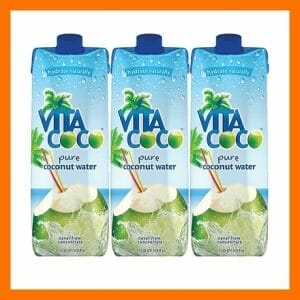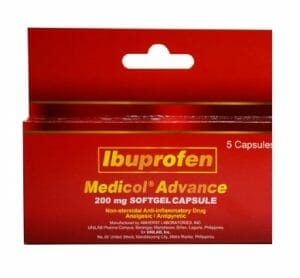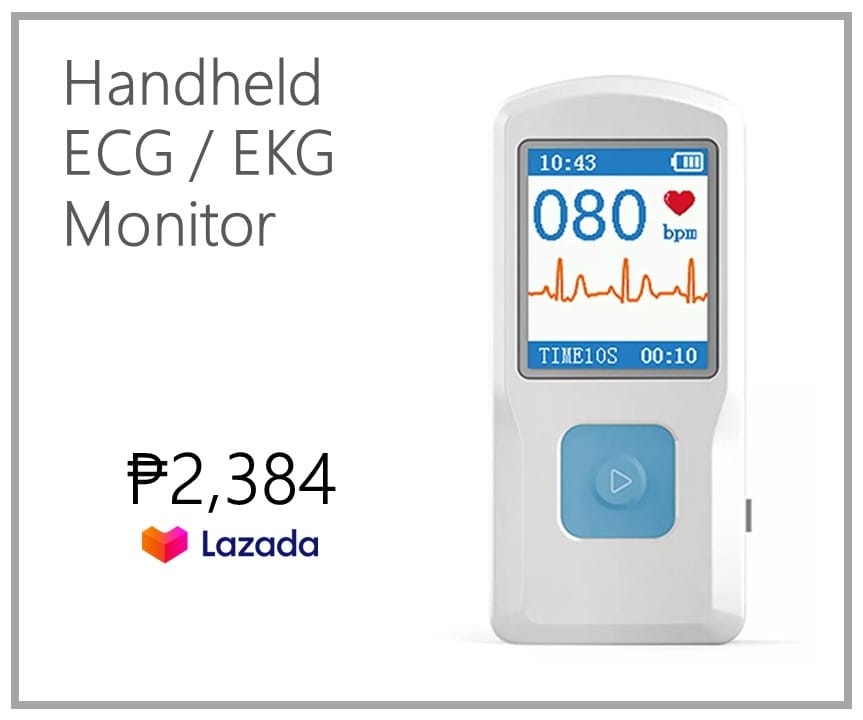Table of Contents
Hangovers are an unwelcome side effect of celebrating with friends and family. For many Filipinos, hangover remedies are a necessary part of their day-to-day lives. Fortunately, there are fast and effective ways to quickly get rid of a hangover without sacrificing the quality of life. In this article, we’ll look at some fast hangover remedies that Filipinos can use to help alleviate their headaches.
Don’t let a hangover ruin your next night out! Learn the best tips and tricks to prevent a hangover before it even starts.
Hangovers can be an unpleasant experience, leaving you feeling drained and exhausted the day after drinking. They are a nuisance and can affect your work or school performance. Fortunately, there are steps that you can take to prevent hangover symptoms from occurring. This article will discuss some of the most effective strategies for curing hangovers, and avoiding it to happen, including proper hydration and eating a nutritious meal before drinking alcohol.
![BESPRIN Aspirin 100Mg 1 Tablet [PRESCRIPTION REQUIRED] Watsons Pharmacy](https://e52hyu4yuyt.exactdn.com/wp-content/uploads/2023/01/BESPRIN-Aspirin-100Mg-1-Tablet-PRESCRIPTION-REQUIRED-Watsons-Pharmacy-300x186.jpg?strip=all&lossy=1&ssl=1)
Hangover Remedies
Hangovers are an all-too-familiar consequence of a night out drinking with friends. Filipinos, in particular, are known to enjoy alcoholic beverages, and it is no surprise that hangovers can strike at any moment. But don’t fret – there are fast hangover remedies for Filipinos which can help alleviate the effects quickly and easily.
These hangover remedies involve common ingredients that can be found in most Filipino kitchens. From ginger tea to a classic lugaw or goto dish, these natural solutions will help restore balance and boost energy levels after a night of heavy drinking. They also provide essential nutrients that may have been lost from excessive alcohol consumption, such as vitamin C, iron, magnesium, and potassium which can help replenish the body’s stores and reduce fatigue.
Hangover Remedies #1: Philippine Coconut Water for Hydration
Coconut water has been a popular drink among Filipinos for centuries and is now used as a fast hangover remedy. Coconut water is packed with electrolytes and naturally low in sugar, making it an ideal way to replenish hydration after a night of drinking. It contains vitamins and minerals like potassium, sodium, magnesium, phosphorus, calcium, and even antioxidants that help speed up recovery.
For those looking for an all-natural solution to their morning-after woes, coconut water can be a great option. Not only does it help to restore energy levels faster than other drinks containing caffeine or sugar, but its antibacterial properties may also aid in reducing the symptoms of nausea or upset stomach associated with hangovers.
When consumed regularly, coconut water can even prevent dehydration from occurring in the first place. As it has fewer calories than most sports drinks, it can also serve as a healthier alternative for those who are conscious about their weight or trying to lose some extra pounds without sacrificing energy levels. Additionally, many Filipinos find that coconut water tastes better than other beverages used for hydration purposes, such as Gatorade or Powerade.

Hangover Remedies #2: Philippine Banana & Honey for Nausea
Philippine bananas and honey are two of Filipinos’ best fast hangover remedies. Not only do they help cure nausea, but they also provide essential vitamins and minerals that help to restore balance in the body. Bananas are full of potassium which helps to replenish electrolytes lost from drinking alcohol. Honey is a natural sweetener, rich in antifungal and antibacterial properties that can reduce inflammation, soothe sore throats, and boost immunity.
These two ingredients have been used for centuries as a home remedy for nausea because of their calming effects on the stomach. Eating one banana with some honey on it can help alleviate feelings of queasiness and discomfort associated with hangovers.

Hangover Remedies #3: Lemon & Salt for Detoxification
Are you looking for fast hangover remedies in the Philippines? Lemon and salt could be the answer to your woes. This simple combination has been used by many cultures as an effective way to detoxify the body and restore balance after a night of drinking.
Lemons are packed with Vitamin C, antioxidants, and bioflavonoids, which help to flush out toxins from the body, while salt helps to replenish lost electrolytes. Combining these two ingredients in a glass of warm water first thing in the morning can relieve headaches, nausea, and dehydration associated with alcohol consumption. For added flavor, some people may add honey or other fruits such as grapefruit or oranges for added nutrients.
Not only is this lemon-salt mixture beneficial for hangovers, but it can also help prevent them in the first place when consumed before alcoholic beverages.

Hangover Remedies #4: Ginger Tea for Upset Filipino Stomach
Ginger tea is a popular home remedy for upset stomachs, especially among Filipinos. It is known to help with digestion and stomach discomfort and is also fast-acting and easy to make. Filipinos looking for some fast hangover remedies should consider making ginger tea – its anti-inflammatory properties may quickly relieve the symptoms of a hangover.
Ginger tea can be made by boiling one teaspoon of freshly grated ginger root in three cups of water. Allow the mixture to boil for 10 minutes before straining the tea into a cup or mug. Adding lemon juice and honey can enhance the taste while providing an extra boost of nutrients that may help fight against hangover symptoms like fatigue, headaches, and nausea.

Hangover Remedies #5: Take Medicines
For a quick and easy remedy, many Filipinos opt for over-the-counter medications like paracetamol or ibuprofen, which have been proven effective in treating headaches and reducing inflammation caused by excessive alcohol consumption. Other hydration solutions like Gatorade are also popular among those looking for fast relief from their hangovers.
Aspirin
Aspirin is one of the most widely used over-the-counter medications in the world, and it can also be a powerful hangover remedy for Filipinos. Research has shown that aspirin reduces inflammation and discomfort, which is the cause of many hangover symptoms. Aspirin reduces headaches, nausea, dizziness, and fatigue, which are common after heavy drinking.
When using aspirin to treat a hangover, it’s important to note that its effectiveness depends on dosage and timing. Taking aspirin before or while drinking alcohol helps prevent symptoms from occurring in the first place. If you’re already experiencing hangover symptoms, taking two tablets at bedtime may help relieve them by morning. However, taking too much aspirin or taking it too late in the day can make your stomach upset or worse—negating any beneficial effect.
![NORPLAT Clopidogrel Aspirin 75mg75mg 1 Tablet [PRESCRIPTION REQUIRED] Watsons Pharmacy](https://e52hyu4yuyt.exactdn.com/wp-content/uploads/2023/01/NORPLAT-Clopidogrel-Aspirin-75mg75mg-1-Tablet-PRESCRIPTION-REQUIRED-Watsons-Pharmacy-300x252.jpg?strip=all&lossy=1&ssl=1)
Ibuprofen
Ibuprofen, an over-the-counter medication, is often used as a fast hangover remedy for Filipinos. It can help reduce the effect of headaches and body aches caused by drinking alcohol. Ibuprofen has anti-inflammatory properties, which help to reduce inflammation in the body. This relieves the fatigue associated with hangovers and helps restore your energy levels quickly.
Studies have shown that ibuprofen is safe when taken in lower doses, though higher doses can cause side effects such as stomach upset or decreased kidney function. However, it is recommended that you take ibuprofen only on occasion for hangovers and not regularly, as long-term use may increase your risk of heart attack or stroke. Be sure to consult your doctor if you are considering taking ibuprofen regularly for any reason.

Other Nonsteroidal anti-inflammatory drugs (NSAIDs)
Nonsteroidal anti-inflammatory drugs, or NSAIDs, are a type of medication commonly used to treat pain and inflammation. These are sometimes the go-to solution for those who have had one too many drinks the night before and find themselves with a nasty hangover in the morning. Here we look at some examples of NSAIDs that can help Filipinos cope with their next-day hangover woes.
Ibuprofen is perhaps the most well-known NSAID, and one of its most popular forms is sold under the brand name Advil. It is available over the counter in many pharmacies across the Philippines, making it easily accessible for those with a hangover headache. Another popular form of ibuprofen is Medicol which contains higher doses than Advil, so it may provide more effective relief from headaches caused by dehydration after drinking alcohol.

Hangover Remedies #6: Exercise & Sleep for Fast Recovery
Exercise and sleep are two of the most important recovery components for Filipinos suffering from a hangover. Physical activity and restful sleep help restore energy levels. Still, they can also reduce the symptoms associated with excessive alcohol consumption by releasing endorphins and providing a distraction from uncomfortable feelings.
Filipinos should try engaging in light exercises such as walking or gentle stretching for fast hangover remedies. This will get their circulation going and provide an outlet for any excess nervous energy that may be present after drinking alcohol. Additionally, it can be a mild distraction from any unpleasant feelings they may be experiencing due to their hangover. Furthermore, getting adequate amounts of restful sleep is essential for helping to replenish energy levels after overindulging in alcoholic beverages.
Traditional Remedies from Home
Filipinos are known for their hospitality, but the morning after a night out can be quite unpleasant. Fortunately, there are traditional remedies Filipinos have been using for years to reduce the effects of a hangover quickly.
A popular remedy is eating something sweet like bananas in syrup or a cup of hot Arroz Caldo. Bananas contain vitamin B6, which helps break down alcohol and replenish electrolytes, while rice porridge (lugaw or goto) is easy on the stomach and provides energy-boosting carbohydrates. Alternatively, drinking a cup of salabat (ginger tea) with honey can help settle an upset stomach, and coconut water helps rehydrate your body after long nights of drinking.

Causes of Hangovers
The causes of hangovers are well known: overconsumption of alcohol, dehydration, and low blood sugar.
Though it might not always be possible to prevent a hangover from occurring after drinking too much, there are measures that can reduce the severity and frequency.
Too Much Alcohol
Hangovers are a common experience after drinking too much alcohol. They usually present with headaches, nausea, fatigue, and dizziness. While there is no one definitive cause of hangovers, scientists believe it is the result of several factors that can be avoided.
Alcohol is considered a diuretic, meaning it increases urine production. This causes dehydration and electrolyte imbalance in the body due to the loss of important minerals like sodium and potassium. Alcohol also impairs the body’s ability to absorb water from food or drinks we take in, making hydration more difficult. Additionally, alcohol affects sleep quality which can leave us feeling tired and groggy the next day.
Finally, certain compounds called congeners found in alcoholic beverages had been linked to increased intensity of hangover symptoms.

Dehydration
Alcohol is a diuretic that increases urine output and causes dehydration. This can be problematic because dehydration makes it harder for toxins from alcohol to exit your body quickly enough to avoid their negative effects on your body. When you become dehydrated during a night out drinking, you may wake up with an intense headache and other symptoms like nausea, dizziness, and lethargy.

Low Blood Sugar
When alcohol is consumed, it reduces the production of glucose in the liver, which results in low blood sugar levels. This can affect how our bodies function and cause symptoms such as dizziness, fatigue, shakiness, and difficulty concentrating, which are all common for those suffering from hangovers. Furthermore, dehydration also plays a role in causing low blood sugar after drinking; this occurs because the alcohol prevents the release of an antidiuretic hormone that helps to regulate water balance within our bodies.

Congeners in Drinks
Hangovers can be caused by the buildup of toxins in your body due to alcohol consumption. Congeners are one type of toxin found in alcoholic beverages. These toxic substances can cause hangovers that last anywhere from one to several days and can be very uncomfortable for those affected.
Congeners are organic molecules produced during fermentation and aging processes, including those used to make beer, wine, whiskey, cognac, and other spirits. While congener levels vary widely between different types of alcoholic drinks, their presence is highest in darker liquors such as brandy or whiskey. In addition to contributing to a hangover’s severity, congeners can also increase the amount of time it takes for your body to eliminate alcohol’s effects.

Poor Sleep Quality
Insufficient or poor-quality sleep can interfere with our body’s ability to metabolize alcohol and recover from its effects. This can affect hormones like cortisol and serotonin, leading to symptoms such as fatigue, headache, nausea, thirst, and sensitivity to light and sound – all common signs of a hangover. Additionally, research has suggested that people who experience poorer quality sleep after drinking alcohol tend to report more severe hangover symptoms than those who get better restorative sleep following a night out.

Stress & Anxiety
A study by the University of Surrey found that individuals who experienced higher levels of anxiety showed more signs of feeling unwell following moderate alcohol consumption, including headache and nausea. Stress has also been linked to dehydration, which is known to be one of the main causes of experiencing a hangover. It has been suggested that when individual experiences high levels of stress, their body produces increased amounts of cortisol, leading to increased urination and dehydration.

Hydrate Properly
Everyone has experienced a hangover at least once in their life. A hangover is an unpleasant feeling caused by excessive drinking, leading to dry mouth and headaches. Fortunately, there are steps that you can take to prevent a hangover from happening in the first place.
Hydrate Properly. Staying hydrated before, during, and after drinking alcohol is essential for preventing a hangover. Before drinking, make sure to drink plenty of water to stay hydrated throughout the night. During your night out, alternate between alcoholic drinks and water or other non-alcoholic beverages such as soda or juice every few hours. After you’re done drinking alcohol for the night, drink 2-3 glasses of water before going to bed so that your body is replenished with fluids overnight.

Eat Before Drinking
Do you want to avoid feeling terrible the morning after a night out of drinking? Knowing how to prevent a hangover can be the difference between feeling good and having a foggy headache all day. Eating before drinking is one of the best ways to help prevent a hangover.
When consuming alcohol, it is important that food has already been consumed beforehand. The sugar from food will help you absorb the alcohol faster and reduce its effects on your body. It also gives your stomach something to digest as you drink, which helps slow down absorption rates and limits how much alcohol enters your bloodstream at once – ultimately reducing intoxication levels.
Foods high in protein, such as eggs, nuts, and cheese, are particularly effective since they contain essential amino acids needed to metabolize liquor faster.

Avoid Mixing Drinks
The best way to avoid hangovers is not to drink too much alcohol in the first place. Try alternating between drinking an alcoholic beverage and drinking water throughout the night to stay hydrated and pace yourself. Also, refrain from mixing different types of drinks, as this can increase your risk of developing a hangover or even worse health complications later. Stick with one type of alcohol — preferably wine or beer — for a lower-risk approach and smoother transition into the morning after effects.

Limit Alcohol Intake
Hangovers are a part of many people’s lives, especially those who enjoy an occasional alcoholic beverage. But hangover symptoms can be uncomfortable and sometimes even dangerous; this is why it’s important to take preventative measures against them. One of the most effective ways to reduce your hangover risk is limiting your alcohol intake.
Alcohol affects everyone differently, so it’s important to find the amount that works best for you. Avoid drinking more than one or two drinks per hour, and give yourself time to recover between drinks. Drinking water in between alcoholic beverages will also help reduce your risk of dehydration and other symptoms associated with hangovers.

Drink Water During And After Drinking
When it comes to preventing hangovers, one of the most important tips is to drink water while and after drinking. This simple step can help reduce the severity of a hangover by helping to rehydrate your body and flush out toxins that have been ingested.
It is especially important to keep hydrated when consuming alcohol in large quantities, as dehydration is one of the main causes of a hangover. The best way to ensure sufficient hydration is by consuming at least 8 ounces of water between drinks during the evening and continuing to drink water throughout the night before going to bed. Additionally, having a glass or two of water before bed will help rehydrate your body throughout the night.

Takeaway: Fast Hangover Remedies For Filipinos
In conclusion, many fast hangover remedies are available to Filipinos. These include snacks, teas, and other beverages that can help restore the necessary electrolytes and vitamins needed for a full recovery. All these remedies help make the hangover experience more bearable by mitigating some unpleasant symptoms. However, it is still best to minimize alcohol consumption and practice responsible drinking habits to prevent this situation from arising altogether.
Hangovers are a common occurrence for Filipinos. However, they don’t have to be a total bummer. By following the tips discussed in this article, such as drinking plenty of water and eating the right foods, Filipinos can make their hangover symptoms more bearable and even prevent them from occurring in the first place. Additionally, it’s important to remember that everyone is different, so what works for one person may not work for another.
Sources: Fast Hangover Remedies For Filipinos
- Hangovers – Diagnosis and treatment – Mayo Clinic
- 7 steps to cure your hangover – Harvard Health
- Hangover Cures: No, They’re Not Real — Here’s What to Try Instead – Houston Methodist Medicine
- The 6 Best Ways to Prevent (and Cure) a Hangover – Healthline
- Hangover: Symptoms, Remedies, Cure, Prevention – Cleveland Clinic
- 6 Hangover Cures That Actually Work | Everyday Health
- How to Cure a Hangover: Remedies That Work and Don’t Work – Good RX
Disclaimer
This website is intended to educate both members of the general public and those working in the medical field on the prevalence, causes, and methods for preventing, diagnosing, and treating diseases that affect people throughout their lives. This website’s content is provided solely for informational reasons and is not meant to serve as a substitute for the advice of a qualified medical practitioner.













